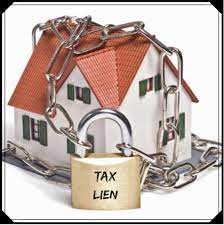 Prior blog posts have discussed the concept of surplus monies in foreclosure proceedings. When a foreclosed property is sold at public auction, the winning bid may exceed the total amount owed to the entity foreclosing on the property. In such a case, the excess funds are considered “surplus funds,” and the Court-appointed Referee will then deposit the surplus funds with the New York State Department of Finance, which has the authority to disburse the funds to the proper party, upon receipt of a Court order from the Court that handled the original foreclosure case.
Prior blog posts have discussed the concept of surplus monies in foreclosure proceedings. When a foreclosed property is sold at public auction, the winning bid may exceed the total amount owed to the entity foreclosing on the property. In such a case, the excess funds are considered “surplus funds,” and the Court-appointed Referee will then deposit the surplus funds with the New York State Department of Finance, which has the authority to disburse the funds to the proper party, upon receipt of a Court order from the Court that handled the original foreclosure case.
Most foreclosure cases involve mortgage debt to an institutional or individual party, usually involving the amounts borrowed by the owner in order to purchase the property, or a loan taken out on the property after it is purchased, such as a second mortgage. However, there is another category of foreclosures that may generate surplus funds – tax lien foreclosures.
Tax lien foreclosures occur when the owner of real property fails to pay property taxes due on his property. Unless the property is tax-exempt, such as a property owned by a non-profit or religious institution, there are generally local real estate taxes, such as village, city, school, and county taxes assessed to the property. Depending on where the property is located, one or more of these taxes would be assessed to the property, either on an annual, semi-annual, or other type of payment schedule as determined by the taxing entity.
What happens if these real estate taxes are not paid? In that case, the entity to whom the taxes are due may commence a tax lien foreclosure proceeding. Alternatively, such village, city, school, or county entity may sell the tax lien to a third party, who may then commence such a proceeding. If the taxes remain unpaid, then the property could be sold at a foreclosure auction, and the funds generated from that auction could be used to pay the delinquent property taxes. In the process, the owner will also lose his ownership interest to the successful bidder at the foreclosure sale.
What happens if the successful bid exceeds the amount due in taxes? For example, let’s say that $10,000.00 is due and unpaid for county taxes. The property is auctioned in a foreclosure proceeding, and the winning bid is $100,000.00. Who is legally entitled to the $90,000.00 in surplus funds?
In New York State, the answer is, in most cases, the entity to whom the taxes are owned has the right to keep all of the funds, even those in excess of the unpaid taxes. In the example above, the county in which the property is located would receive the entire $100,000.00, even though the tax debt was only $10,000.00. The county gets a windfall of $90,000.00 under current law.
However, that situation may soon change. Other states have similar laws to New York. At least twelve states, including New York, New Jersey, and Massachusetts, allow surplus funds to be kept by the taxing entity. Recently, a Minnesota woman lost her home over $2,300.00 in unpaid property taxes. The county government seized her condo and sold it for $40,000.00. The statute in Minnesota allowed the county to keep the entire $40,000.00 and the 93 year old woman is now living in an assisting living facility.
She is challenging this law as a violation of the U.S. Constitution’s protections in the takings clause, excessive fine clause, and substantive due process. In essence, the argument is that the law allowing the county to keep the entire $40,000.00 is unconstitutional.
Recently, the United States Supreme Court agreed to hear her case. If the law in Minnesota is declared unconstitutional, other states with similar laws, such as New York, would also be affected. As a result, New Yorkers who may currently not have a claim to these funds may acquire that right in the future.
Our firm will monitor for the Supreme Court’s decision in this case, and, if the law is overturned, a future post will advise New Yorkers of their legal rights to obtain surplus funds in this situation.
 New York Real Estate Lawyers Blog
New York Real Estate Lawyers Blog

